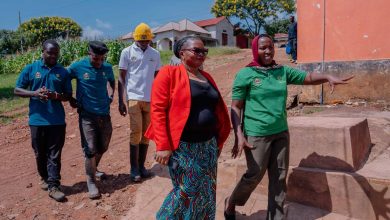Arusha workshop creates awareness on food system

ARUSHA: STAKEHOLDERS from government institutions, United Nations agencies and the private sector have gathered in Arusha for a two-day awareness workshop aimed at improving food systems in Tanzania.
Speaking to the media yesterday, Country Director and Representative of the International Fund for Agricultural Development (IFAD) in Tanzania, Mr Sakphouseth Meng stressed the vital role agriculture plays in the country’s economy.
He noted that agriculture contributes 29.1 per cent of Tanzania’s Gross Domestic Product (GDP), employs over 65 per cent of the population and generates significant export revenue.
“The sector is central to food and nutrition security, rural development and industrialisation. Therefore, its transformation is critical not only for agricultural growth but also for the prosperity and wellbeing of all Tanzanians,” Mr Meng said.
He added, “Since 2021, Tanzania has embraced global efforts to reshape its food systems by unlocking its vast agricultural potential, enabling the country to feed itself and become a food basket for the region.”
According to Mr Meng, transforming food systems requires investments in climate-smart agriculture, efficient water use, crop diversification and inclusive value chains that empower women, youth and people with disabilities.
He stressed that this transformation is not merely a reform but a key to achieving sustainable development and national priorities.
Furthermore, Mr Meng called for bold actions, shared responsibilities and strategic investments from all sectors, emphasising coordinated efforts between government, private sector, civil society and the media.
“Tanzania’s development frameworks, including Vision 2050, the Agriculture Sector Development Programme II (ASDPII), the Agriculture Master Plan and Zanzibar’s Blue Economy and Agricultural Transformation Strategy, clearly demonstrate this commitment.
The six national Pathways for Sustainable Food Systems 2030 provide a comprehensive roadmap to guide these collective efforts,” he said.
ALSO READ: Heifer International reaffirms commitment to empower Tanzanian women, youth
In a related development, Deputy Permanent Secretary at the Ministry of Livestock and Fisheries (Livestock Division), Mr Abdul Mhinte noted that the IFAD-led workshop brought together stakeholders involved in key projects focused on the dairy and fisheries sectors, both addressing challenges posed by climate change.
He said that these projects aim to increase production and enhance the entire food production system, from producer to consumer, in these sectors.
“These projects help improve food systems to ensure that food reaches consumers with appropriate quality and delivers the intended nutritional benefits,” he said.
Mr Mhinte added that the two major projects, funded by multiple stakeholders including IFAD, have a combined budget exceeding 200 million US dollars.
Speaking on behalf of the Food System Country Convener, Ms Margaret Natai, Chief Agriculture Officer at the Ministry of Agriculture, underscored the ministry’s role in educating stakeholders about food systems to clarify their roles.
“We have guidelines to direct us and we hope stakeholders understand and contribute to them. Topics such as climate change, nutrition, food security, school feeding programmes and the entire food chain from production to consumption, including food waste and processing are critical areas we address,” she said.





